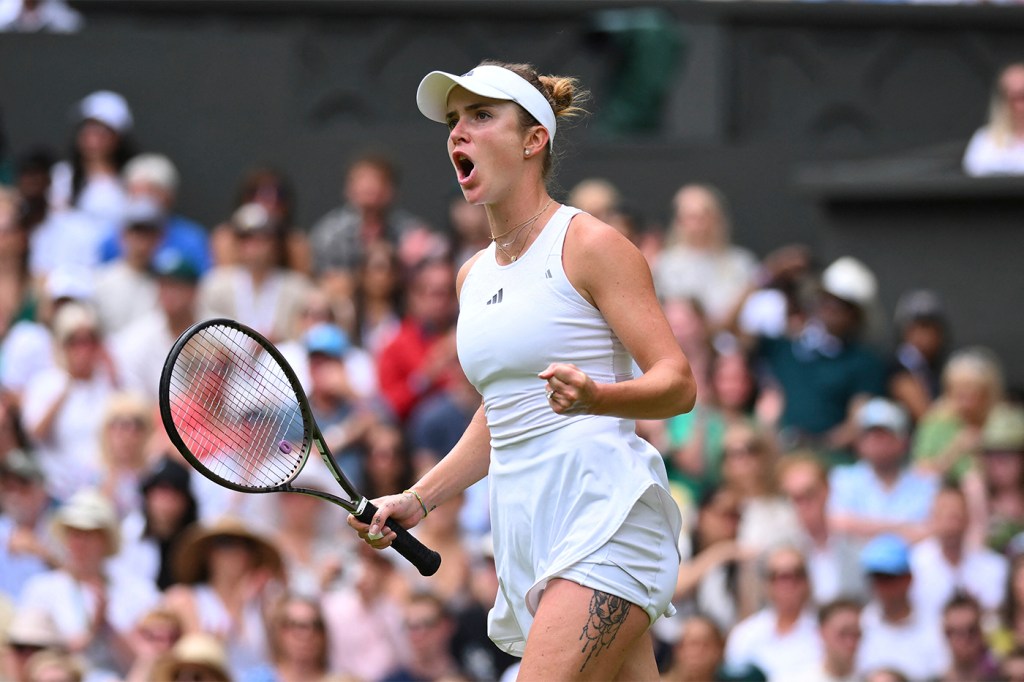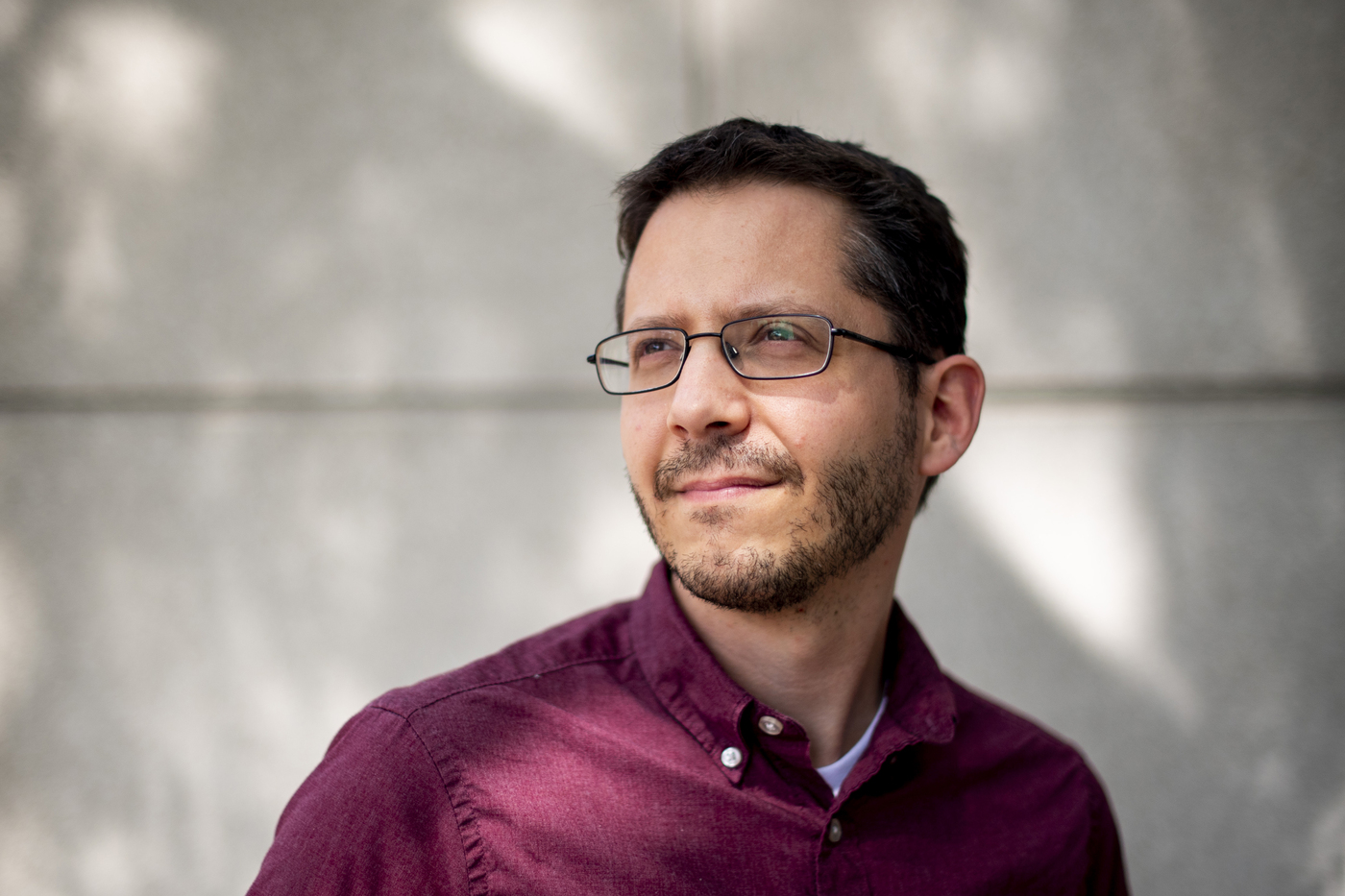Should athletes shake hands during war? A look at this year’s Wimbledon handshaking controversy

In tennis, the post-match handshake between players at the net has long been part of the game’s tradition. And, in a sport where decorum and respectability are—for better or worse—historical features of the game, basic etiquette carries near-sacred significance.
That’s why a spat between two players at this year’s Wimbledon has generated considerable buzz in the world of sports, all to do with the simple gesture—of lack thereof.
In London on Sunday, Ukrainian player Elina Svitolina and Belarusian player Victoria Azarenka shirked tennis code by waiving the customary handshake. For months, Svitolina and others have been forgoing the gesture in protest over Vladimir Putin’s war in Ukraine.

On its face, the situation seems trifling. (It’s just a handshake, right?) But the feud between the two players tells a complicated story—one that raises thorny ethical questions about the role of sport in society and beyond, says Rory Smead, associate professor of philosophy and the Ronald L. and Linda A. Rossetti Professor for the Humanities at Northeastern, who researches social conventions and ethical behavior.
“First, this is not a new phenomenon with respect to sports and politics—that is, conflict between the ethical norms of the sport and broader ethical and political contexts in which it is being played,” Smead says.
After defeating Azarenka, Svitolina told reporters that until Russia withdraws from Ukraine, “I’m not going to shake hands.” She also pressured the Women’s Tennis Association to enforce a no-handshake rule between the sides (although Belarus doesn’t have a military presence in Ukraine, it has provided critical material support). Azarenka responded by saying “she respected her decision” to waive the gesture.
This is not the first time the war in Ukraine has intruded on the business of tennis. Last year, Wimbledon took the unprecedented step of banning Russian and Belarusian players from competing at the All England Club. Since the invasion, reporters have hounded Russian and Belarusian players for their positions on the war, including most recently at the French Open.
Belarusian player Aryna Sabalenka was also on the receiving end of the no-handshake at this year’s Roland Garros—also from Svitolina, in addition to Ukrainian player Marta Kostyuk. Kostyuk’s refusal to shake hands after losing in the first round to Sabalenka drew boos and jeers from the French crowd—derision the Belarusian told reporters she thought was directed at her.
This is not a new phenomenon with respect to sports and politics—that is, conflict between the ethical norms of the sport and broader ethical and political contexts in which it is being played
Rory Smead, associate professor of philosophy and the Ronald L. and Linda A. Rossetti Professor for the Humanities at Northeastern
After defeating Svitolina later in the tournament, Sabalenka waited at the net, as is custom, to shake hands with the Ukrainian. Then, during the press conference after the handshake snub, Svitolina accused Sabalenka of inflaming tensions by waiting at the net for a shake she knew would never come.
With criticism raining down on players on both sides of the net, the situation presents an ethical dilemma with no easy way forward for athletes trying to balance their careers against the pressures to speak out. After her loss to Svitolina at Wimbledon, Azarenka assumed the Ukrainian wasn’t going to shake her hand and walked off the court to boos from the crowd. During the post-match press conference, an exacerbated Azarenka simply noted that there was nothing she could do “that would have been right” given the circumstances.
“She [Azarenka] really captured the idea of what an ethical dilemma is,” Smead says, “which is a genuinely conflicting set of norms that we’re expected to follow. In the end, it’s a lose-lose.”
The moral thinking on the handshake debate is doubly difficult because sport occupies such a “strange place” in the culture, Smead says. On the one hand, professional sport provides a “controlled setting for conflict and competition,” but only insofar as it can maintain a sense of “play.” To that end “sportsmanship norms”—e.g., the handshake—are necessary in upholding the integrity of the game, he says.
When players engage in sportsmanship, “it adds to the enjoyment of the sport,” Smead says. “We enjoy the spectacle of competition, but without the real consequences associated with many other things in life. Indeed, the whole idea of a game is to try to not have real consequences.”
On the other hand, Smead points to the fact that, historically, sport has also provided an opportune venue for protest—for ethical norm-busting. Thus, it shouldn’t surprise us when players sack convention in favor of what utilitarians call “the greater good.” He cites several notable examples from the last 100 years: from the 1936 boycott of the Berlin Olympic Games and the 1978 boycott of the World Cup amid Argentina’s “dirty war,” to San Francisco 49ers quarterback Colin Kaepernick kneeling for racial injustice.
But, in a sport like tennis, where players are representing themselves as well as their home country, the pressures of speaking out are double-edged—and can come at great personal cost. Smead says he thinks the public discourse doesn’t adequately account for that tension in the case of the WTA stars.
“Some journalists don’t appreciate the ethical complexity of the situation; they often fixate on one set of norms,” Smead says. “Should we condemn those who don’t condemn war? Of course, we should. But, again, I think this is thinking too narrowly. In addition to being sportswomen, they’re people too.”
Tanner Stening is a Northeastern Global News reporter. Email him at t.stening@northeastern.edu. Follow him on Twitter @tstening90.






